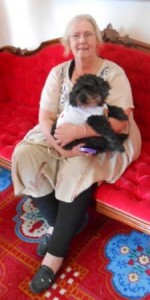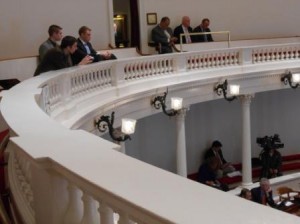News & Commentary
Jul 29, 2014
A Good First Step to Reining in the NSA
This afternoon, Sen. Patrick Leahy introduced a bill aimed at regaining control over the NSA's dragnet of America. It's a good start to fixing the immense problem.

Jul 17, 2014
Hobby Lobby in Vermont?
On June 30th, the U.S. Supreme Court held in Burwell v. Hobby Lobby that closely held corporations with religious objections to the Affordable Care Act may refuse to provide certain reproductive health care to employees. We've been asked: could a business opt out of a Vermont law in the same way?

Jul 15, 2014
a good day for privacy
Last week, the Vermont Supreme Court confirmed that police may not warrantlessly take DNA from everyone arraigned for a felony. That's great news for the Vermont Constitution.

Jun 10, 2014
Taser Bill Signed Into Law
Vermont's first-in-the-nation statewide Taser training and use bill was signed into law Tuesday by Gov. Peter Shumlin. The law, had it been in effect in 2012, would have prevented the police Taser death of her son, Macadam Mason, said Mason's mother, Rhonda Taylor at the Statehouse signing. She praised legislators, Gov. Shumlin and his administration, law enforcement, and civil rights and mental health advocates for getting the at-times contentious bill over the finish line.

May 30, 2014
Our Privacy Pushed And Pulled From Us
Long waits at the border? Get finger-printed or iris-scanned and receive an easy-pass NEXUS card! Don't want your driver's license super-charged to a national identity REAL ID card? OK, but the Vermont DMV will take your Vermont driver's license and hand you back a Vermont Privilege Card! They say it's the same thing, but try using it to rent a car.

May 12, 2014
2014 Legislative Wrap-Up
Significant strides were made this year in the legislature around a number of civil liberties issues. Check out our quick rundown of the high points (as well as some disappointments). Details for each bill can be found on our full legislative report.

May 08, 2014
Taser Bill Gets Final Legislative Approval
The House voted Thursday morning to accept the Senate's changes to H. 225, the Taser regulation bill. The bill will now go to Gov. Peter Shumlin for his approval. The House acceptance came on a unanimous voice vote, identical to the Senate's approval on Monday. The concurrence avoids a conference committee, which coming this late in the session could have meant defeat due to lack of time.

Stay Informed
Sign up to be the first to hear about how to take action.
By completing this form, I agree to receive occasional emails per the terms of the ACLU’s privacy statement.
By completing this form, I agree to receive occasional emails per the terms of the ACLU’s privacy statement.
